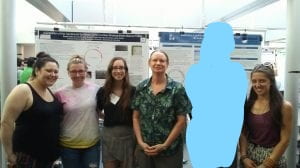Congratulations to Anbu, Alex, Ben, and everyone else involved in this! It was a worthwhile challenge.
Proteome remodeling in the zoospore-to-vegetative cell transition of the stramenopile Aurantiochytrium limacinum reveals candidate ectoplasmic network proteins



